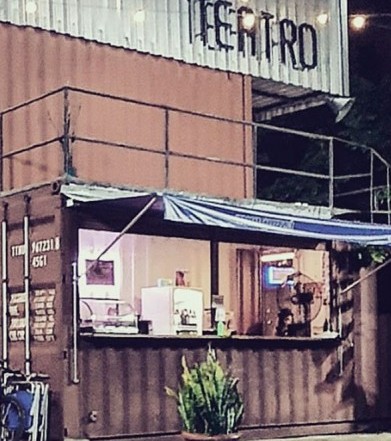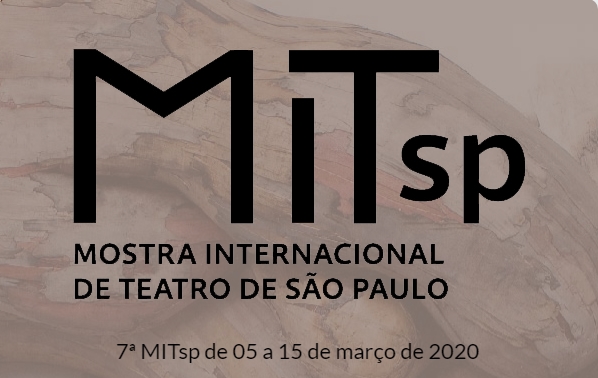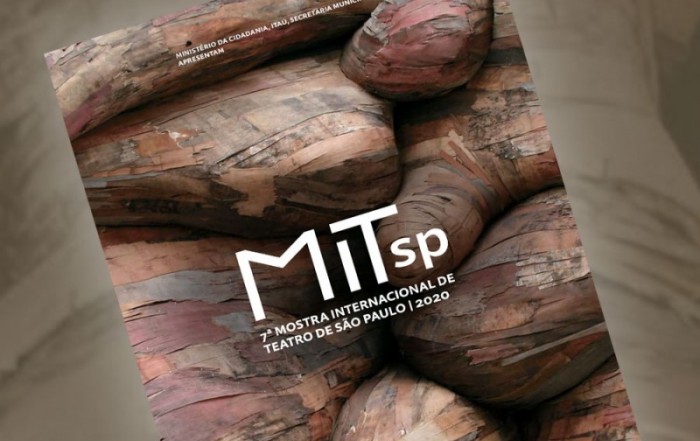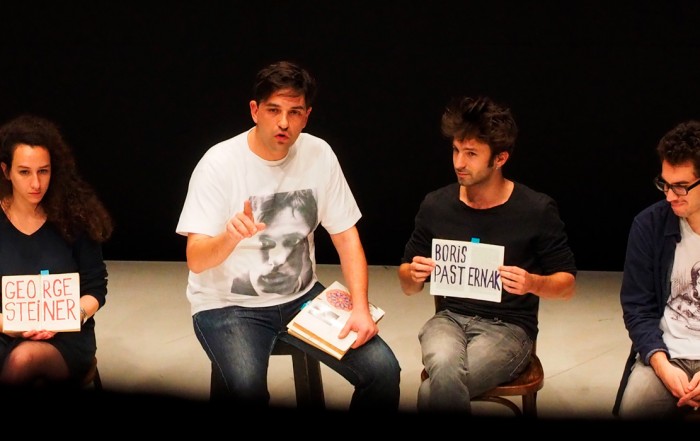THE LAST STRAW {BLACK}
Original Title: Gota D’Água {PRETA}
Jé Oliveira
SÃO PAULO/SP, 2019 | 80min | Parental rating: 12 anos
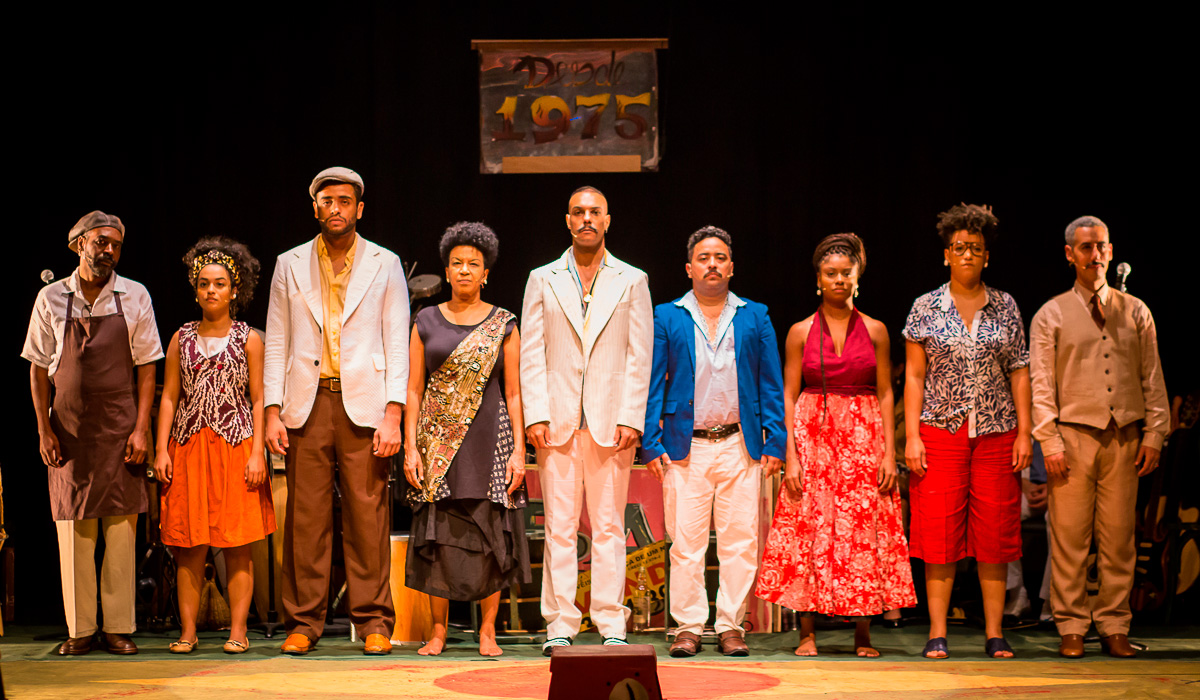
©Evandro Macedo
11/3, at 18h
PLACE: Teatro do Sesi SP

The Last Straw adaptation, a musical by Chico Buarque and Paulo Pontes, highlights the racial issues inserted in the 1975 work, which transfers the Medea tragedy to Rio de Janeiro’s suburb. If the original version debates the sociopolitical implications of the Brazilian military regime, the rereading by director Jé Oliveira blackens and updates the work: it brings a mostly black cast, showing the social and racial context of the characters (poor, residents of a housing estate), in addition to highlighting some aspects of African religions and black musicality – introducing African percussion instruments and elements of hip-hop. A Brazilian version of Medea, Joana is a middle-aged woman who finds herself left by her husband, the young samba player Jason, and about to be evicted from the apartment where she lives with her two children. Using a marital betrayal metaphor, the show highlights racial, social and class discussion based on the country’s current political moment.
 Jé Oliveira is an actor, director and playwright, graduated from the Escola Livre de Teatro de Santo André, where he also taught drama classes. He is one of the founders of Coletivo Negro, a group focused on racial issues since 2008, He wrote the plays Farinha com Açúcar ou Sobre a Sustança de Meninos e Homens, {ENTRE}, Azar do Valdemar, Nóis, Taiô and Movimento Número 1: O Silêncio de Depois… Besides Coletivo Negro, he contributed artistically with many Brazilian groups. With The Last Straw {Black}, he won the APCA Award for Best Direction in 2019.
Jé Oliveira is an actor, director and playwright, graduated from the Escola Livre de Teatro de Santo André, where he also taught drama classes. He is one of the founders of Coletivo Negro, a group focused on racial issues since 2008, He wrote the plays Farinha com Açúcar ou Sobre a Sustança de Meninos e Homens, {ENTRE}, Azar do Valdemar, Nóis, Taiô and Movimento Número 1: O Silêncio de Depois… Besides Coletivo Negro, he contributed artistically with many Brazilian groups. With The Last Straw {Black}, he won the APCA Award for Best Direction in 2019.
CRITICS
If the main issue of The Last Straw examines the odds of resistance and reaction by Joana (now performed by singer Juçara Marçal) in the face of the oppressor’s crushing economic power, the answer given by The Last Straw {Black } is definite and materially inscribes itself in the form of the show: it is a way of compensating all black people who have been silenced and made invisible for so long (also on stage).
Director Jé de Oliveira confers the piece the racial adjectives imposed by the word, thus turning the musical into a kind of clamour from black and poor people – “treated like blacks” – subjugated by the dominant class shaped mostly by whites – “Or almost all white” – and financially well off. Boasting talent, the show makes a naked and raw portrait of a social problem that, more than 40 years after the play was written, has not yet been overcome.
MICHEL FERNANDES, Aplauso Brasil
We find not only black characters, but another thought about the plot and the theatre. The bodies there are not only the object of a popular narrative. They integrate an aesthetic that expands the play’s critical horizon. Edy Rock would say, in this great theatrical quote: “I was the flesh / now I am the razor itself”.
TECHNICAL SHEET
DRAMATURGY: Chico Buarque and Paulo Pontes
GENERAL DIRECTION, CONCEPT AND ORIGINAL IDEA: Jé Oliveira
CAST: Aysha Nascimento, Dani Nega, Ícaro Rodrigues, Jé Oliveira, Juçara Marçal, Marina Esteves, Mateus Sousa, Rodrigo Mercadante and Salloma Salomão
BAND DJ: Tano (pickups and bases), Fernando Alabê (percussion), Gabriel Longhitano (electric guitar, guitar and cavaco) and Suka Figueiredo (sax)
DIRECTION ASSISTANCE AND COSTUME DESIGN: Éder Lopes
MUSICAL DIRECTION: Jé Oliveira and William Guedes
VOCAL COACH: William Guedes
MUSICAL CONCEPT AND QUOTE SELECTION: Jé Oliveira
SET: Julio Dojcsar
SET TECHNICIAN: Jé Oliveira
GRAPHIC ARTIST: Murilo Thaveira
LIGHT DESIGN: Camilo Bonfanti
LIGHTING TECHNICIAN: Camilo Bonfabti and Lucas Gonçalves
SOUND TECHNICIAN: Alex Oliveira
PRESS: Elcio Silva
COORDINATION OF THEORETICAL STUDIES: Juçara Marçal, Jé Oliveira, Salloma Salomão and Walter Garcia
EXECUTIVE PRODUCTION: Janaína Grasso
GENERAL PRODUCTION: Jé Oliveira
PHOTOS: Evandro Macedo and Tide Gugliano
VIDEO AND EDITION: Marília Lino
PRODUCTION: Itaú Cultural
PRODUCTION: Gira pro Sol Produções















